- Video: The Ultimate FICUS BENJAMINA Care Guide (Weeping Fig Plant Care)
- Conditions for normal growth
- Video: Everything you Need to Know about Ficus Care!
- Methods of reproduction
- Video: Ficus benjamina (Weeping Fig) Care: What to Know
- Decorative techniques
- Video: Ficus Benjamina - Bush to Bonsai (part I)
- Diseases and pests
- Other growing problems
- Growing ficus is an interesting hobby and benefits
- Video: How to Care for a Ficus Tree in Your Home
- Rate the author (2)
- Comments (3)
Ficuses are one of the favorite houseplants of flower growers. It is grown not only because of the excellent decorative effect. It is believed that the ficus attracts good luck to the house, is a symbol of a strong family, and neutralizes negative energy.
A miniature plant variety - Benjamin Natasha's ficus with a flexible, pliable trunk. This property is used to decorate bonsai. The plant is unpretentious, but you need to know where to put ficus Natasha, how to properly care for it.
So, home care for ficus Benjamina Natasha - further in our article.
Video: The Ultimate FICUS BENJAMINA Care Guide (Weeping Fig Plant Care)

Conditions for normal growth
There is nothing complicated in the rules of home care for ficus Natasha. Florists who were able to bring anthurium back to life can easily cope with this task. Consider the basic conditions and agrotechnical measures that are needed for a lush tree to grow.
Culture loves constancy. The place chosen for the ficus does not need to be changed. It should be moderately lit, not be in a draft and near heating appliances.
Immediately after the purchase, the plant must be transplanted into a new soil, then change the capacity every 2-3 years, but so that it matches the volume of the root system. Options “for growth” not correct. Expanded clay drainage is arranged at the bottom of the pot. The soil is suitable universal, for indoor plants. The soil mixture can be prepared independently by mixing the earth with sand in a ratio of 2 to 1.
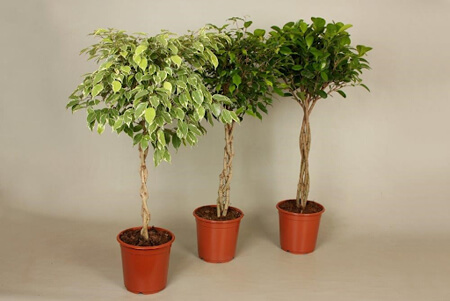
Water
How often to water ficus Natasha? It depends on the time of year and how dry the soil is. Benjamin does not like dry soil and does not tolerate excessive moisture. In summer, the next watering is performed when the top layer is dry, in winter - when the upper half of the container is dry.
Irrigation is carried out in several stages so that the earth is evenly covered with water. Half an hour after watering, the water is drained from the pan. Irrigation is done with warm settled water.
An obligatory daily ritual for a lush crown is irrigation of the leaves with water at room temperature from a spray bottle. After spraying, the bush must be shaken so that drops of moisture and air are distributed evenly.
Feeding
Feeding is used to speed up the growth process. It is best to use ready-made water-soluble mixtures with phosphorus, potassium, iron and phosphates. Feeding is carried out only during the growing season, once every 2-3 weeks.
Experienced gardeners recommend taking a dose half the recommended for the first feeding and observe. If all is well, the dose can be increased. In winter, during the dormant period, the culture should not be fed.
Temperature and lighting
Rules for the organization of the microclimate:
- stable temperature throughout the year;
- optimum 23-25°C;
- preventing the thermometer below 15 °C.
For a comfortable existence, ficus Natasha needs bright diffused light for 12-14 hours a day. Those who have tried to grow mint at home know where to arrange such lighting. These are window sills facing southeast or southwest. The spice culture also prefers diffused light.
In the shade, the leaves lose their gloss, and the trunk bends. It is recommended to rotate the flowerpot periodically so that the crown is formed in the same way.
Video: Everything you Need to Know about Ficus Care!

Methods of reproduction
The plant can be propagated by cuttings and grown from seeds. Cutting algorithm:
- choose a flexible shoot 10-15 cm long and cut;
- remove bottom leaves;
- place the cutting in the “Kornevin” preparation;
- wait for roots to appear. This will happen in about a month.
After such events, ficus Natasha is ready for transplanting into open ground.
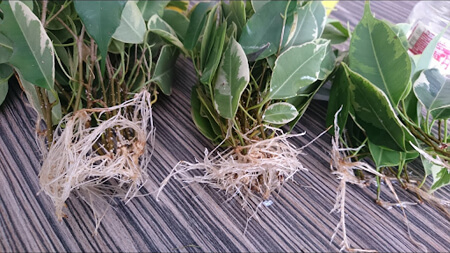
The seeds are planted in a ready-made moistened soil mixture for ficuses, deepening by 3 cm. The container is covered with a film on top and left in a warm, dark place. Every few days the film is removed for a short time for airing. When the first shoots appear, the film is removed and the pot is placed in a stationary place.
The method of propagating ficus seeds is for the patient. Sprouts grow very slowly.
Video: Ficus benjamina (Weeping Fig) Care: What to Know

Decorative techniques
How to wipe ficus leaves to make them shine? Home dust settling on the leaves clogs the pores of the plant, disrupts the vegetation process. To keep the leaves glossy, you need to wipe them with a damp sponge 2-3 times a week and give the plant a shower of water at room temperature.
Cutting
Do I need to prune ficus Natasha? Yes, at the beginning of spring, old, dry branches are cut, as well as very thin ones. The cut is performed above the kidney, along an oblique path. Crop should be:
- shoots located at the bottom of the trunk;
- dry, broken;
- without side parts;
- top thin branches without leaves;
- the juice released during pruning is washed.
Systematic pruning of ficus Natasha allows you to maintain an aesthetically pleasing appearance and stimulates growth.

Shaping the stem
The stem of the plant is quite flexible. To enhance the decorative effect, 2-3 plants are planted in one pot and intertwined. Weaving rules:
- bushes must be the same height, at least 13 cm;
- trunks - 50% woody;
- The trunks are tied at an angle of 45 degrees, bamboo sticks are used to secure them.
When the bonsai is strong, the sticks can be removed.
Video: Ficus Benjamina - Bush to Bonsai (part I)

Diseases and pests
“Enemies” Benjamin Natalya - scale insect, spider mite, mealybug. In relation to pests, a soap solution is effective, which is used to treat the affected leaves, and special preparations. With a strong defeat, it is better to cut the shoots.
Plants can be affected by fungal infections - anthracnose, cercosporosis. The fungus occurs, most often, due to excessively moist soil.
Other growing problems
Why do ficus Natasha leaves fall down? Dropping leaves in the process of adapting to a new place is a normal phenomenon that should not be scared. If you follow the rules of care, the leaves will quickly recover.
Causes of shedding that require immediate elimination, insufficient lighting, excessive watering, drafts, sudden changes in temperature or illness.
Why do ficus Natasha leaves turn yellow? This is due to a violation of the temperature regime, due to dry air, lack of lighting, excess moisture, deficiency or excess of nutrients in the soil.
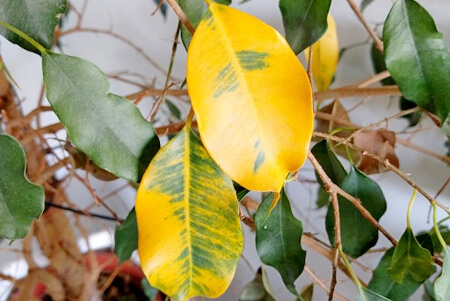
Growing ficus is an interesting hobby and benefits
Ficuses are often placed in bedrooms. The leaves filter the air, absorb harmful substances, which calms the nervous system and improves the quality of sleep. According to Feng Shui, the plant symbolizes profit. A mixture of ficus juice Natasha with water is an effective remedy for migraine. The plant is worthy to take a place in the home collection and “count” for careful proper care.
Video: How to Care for a Ficus Tree in Your Home





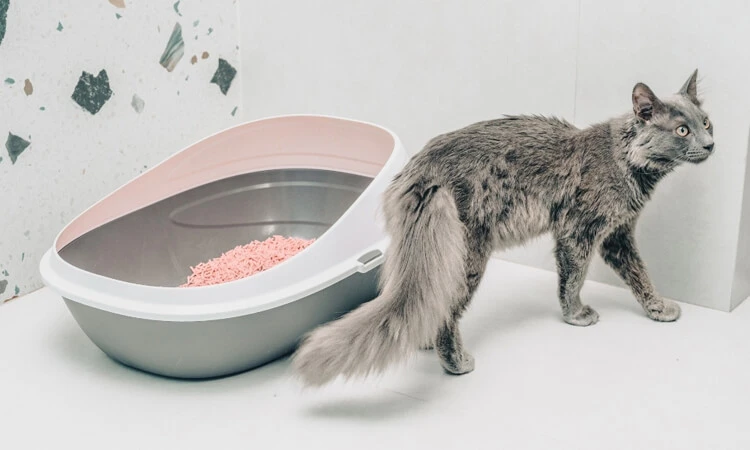
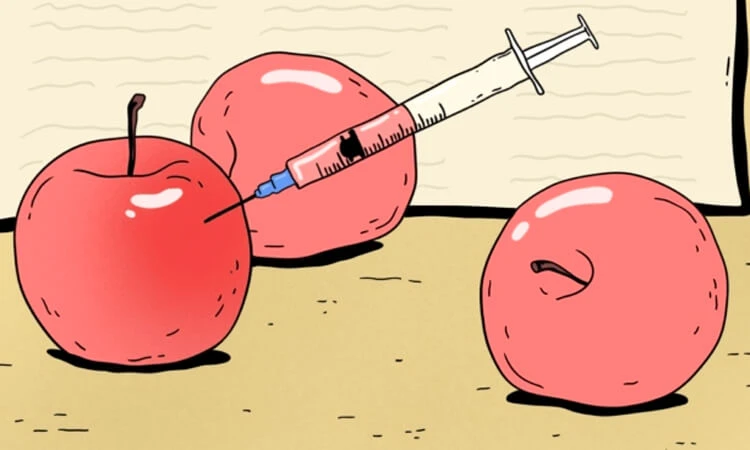
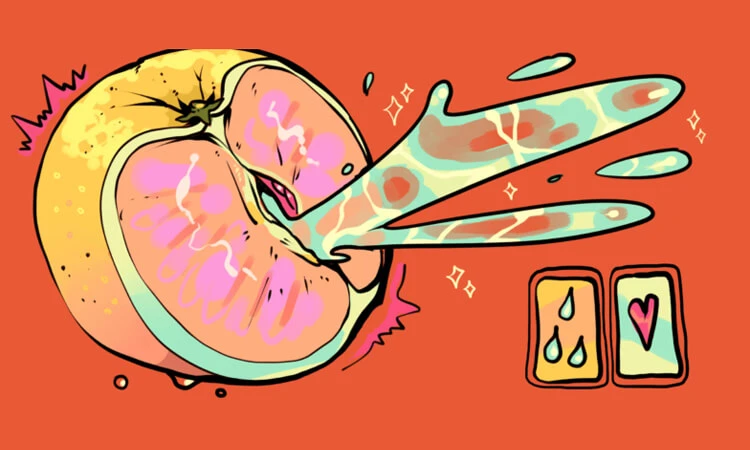


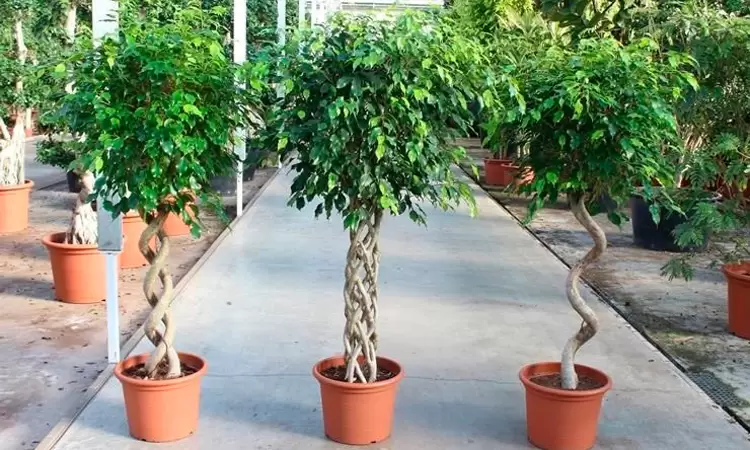




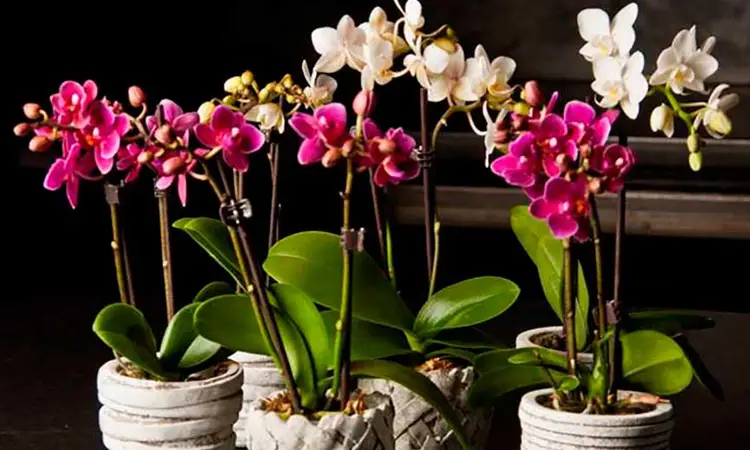
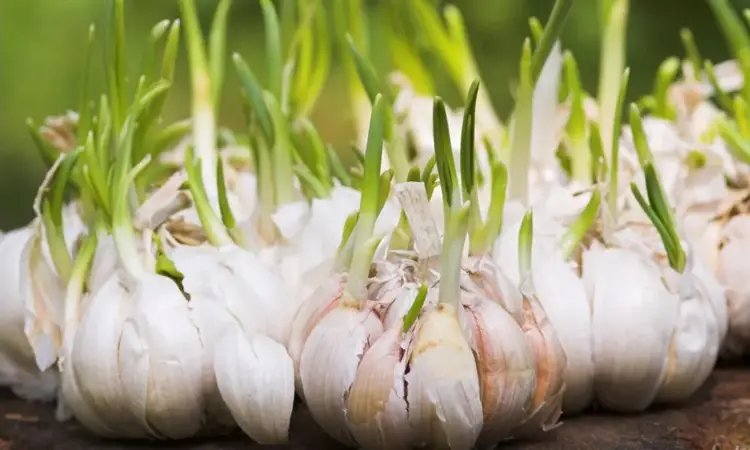

Comments (3)
Ficus Benjamin needs warm room temperature, not lower than 15 degrees Celsius. It does not tolerate sudden changes in temperature and drafts.
The plant needs regular pruning to keep its shape and stimulate the growth of new shoots. Pruning is best done in the spring.
The plant needs moderate watering. Don't let the soil dry out, but don't over-moisten it either. It is best to check the soil moisture with your finger: if it is dry at a depth of a few centimeters, then it is time to water the plant.